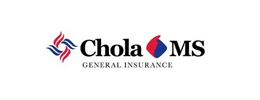Last updated on: September 19, 2025
The best health insurance in India for families in 2025 includes top-rated plans from insurers like HDFC ERGO Optima Restore, Star Health Family Health Optima, Max Bupa Health Companion, and Niva Bupa ReAssure 2.0. These policies offer comprehensive coverage for hospitalization, pre- and post-hospitalization expenses, maternity, daycare procedures, and cashless facilities at a vast network of hospitals. Most plans cater to families of all sizes, provide high sum assured options (up to ₹1 crore), and feature affordable premiums, no-claim bonuses, and restoration benefits. Features such as lifelong renewability, minimal co-pay, and customizable add-ons ensure tailored protection. Comparing customer reviews, claim settlement ratios, policy inclusions, and exclusions will help you pick the ideal health insurance plan for your family’s needs in 2025.
Health insurance is no longer optional for Indian families, especially in 2025 when medical inflation is at an all-time high. Choosing the right family health insurance plan is crucial to safeguard your loved ones and meet unexpected medical expenses. With advancements in treatment, rising lifestyle diseases, and new government regulations, picking the best health insurance policy in India for your family has become a challenging but essential decision.
Let us explore how to select the most suitable plan, which providers stand out in 2025, what unique coverages they offer, and how to compare policies effectively online.
Yes, healthcare costs in India have been rising steadily. In 2025, an average private hospitalisation for a family member can cost anywhere between Rs 50,000 to Rs 5 lakh, depending on the illness and metro city. Middle-class families especially feel the pinch without proper coverage.
Family health insurance acts as a safety net for these unexpected costs and ensures everyone, from children to elders, gets quality healthcare on time.
Diabetes, hypertension, cardiac problems, and cancer cases are increasing not just among older people but also youngsters. In 2025, insurers cover more of these modern ailments as day care or with special covers, making newer plans much more relevant than older ones.
The regulator has capped hidden charges, standardized waiting periods for pre-existing diseases, and promoted cashless treatment networks. Policies launched in 2025 are more transparent, customer-friendly, and have broader hospital networks than before.
Did you know?
IRDAI’s recent mandate has made it compulsory for insurers to process cashless claim requests within one hour at network hospitals, making emergency admissions less stressful for families.
Choosing the best policy depends on many factors beyond just the premium amount.
Absolutely. Policies offer lifetime renewability, but the earlier you buy, the lower your premium. Add-on covers for senior citizens, chronic diseases, or newborns are valuable in 2025 as they cater to evolving health needs.
People also ask:
How does a family floater plan differ from individual plans?
A family floater covers the entire insured family under one umbrella sum insured, making it more pocket-friendly and easy to manage compared to taking multiple individual policies.
Experts Insights:
Industry experts say, “Buy a family floater with a high sum insured, then supplement it later with top up plans as your family’s needs evolve”.
Several insurers now offer comprehensive plans suited to modern Indian families. Here is a look at five leading health insurance policies available in 2025.
| Insurance Plan | Sum Insured Range | Annual Premium (Family of 4, Age 30) | Network Hospitals | Key Benefits | Claim Settlement Ratio (FY24) |
|---|---|---|---|---|---|
| HDFC Ergo Optima Secure | Rs 5L - 2 Cr | Rs 14,500 | 12,000+ | Unlimited reinstatement, no room rent capping, OPD | 96.3% |
| Star Health Family Health Optima | Rs 3L - 25L | Rs 13,000 | 14,000+ | 60 day pre, 120 day post hospitalisation, maternity cover | 94.7% |
| Niva Bupa Reassure 2.0 | Rs 5L - 1 Cr | Rs 16,200 | 11,500+ | ReAssure benefit, Health Coach, booster, free annual checkup | 98.2% |
| Max Bupa Health Companion | Rs 5L - 1 Cr | Rs 12,800 | 10,000+ | No room rent capping, refill benefits, wellness services | 96.5% |
| Care Health Insurance Family Plan | Rs 5L - 75L | Rs 15,100 | 10,000+ | Automatic recharge, no claim bonus up to 150%, critical illness cover | 95.8% |
Data indicative for 2025, actual may vary as per sum insured and age.
Did you know?
In 2025, many insurers offer digital health cards and app-based tracking for policyholders and their family members, making hospitalisation hassle-free even during outstation emergencies.
People also ask:
Can I cover in-laws under my family floater?
Some policies allow you to cover parents and in-laws in the same policy. However, premium may rise, and sub-limit conditions may apply.
Claim settlement ratio is the percentage of claims paid by an insurer versus the claims it receives in a financial year. A high ratio (above 95 percent) indicates customer-friendly processes and trustworthiness. In 2025, leading insurers are increasing digital claim settlement for faster reimbursement.
Most insurers offer app or website-based claim filing for both cashless and reimbursement cases. In metro cities, 90 percent of cashless claims are approved within 2 to 4 hours. Digital documentation has made tracking claims much easier for busy families.
Always disclose existing health conditions, avoid hiding any pre-existing illness, and submit complete paperwork. Many platforms send automated reminders to upload necessary documents to avoid last-minute claim rejections.
Experts Insights:
Pankaj, a senior insurance advisor in Delhi, says, “Families must keep digital copies of all diagnostic, hospital, and prescription documents handy for faster and smoother claims, especially during emergencies.”
Maternity cover is increasingly included in new family floater plans in 2025, often with a waiting period of 9 to 24 months. These plans also cover newborn expenses, vaccinations, and can be extended to include fertility treatments as add-ons.
Yes, most plans may cap maternity coverage between Rs 25,000 and Rs 1 lakh, depending on the sum insured. Expenses related to c section deliveries or medically complicated births may have lower sub limits.
Some insurers now offer coverage for newborn babies from day one, provided the mother is already insured, and the child is added within 90 days. This is a key benefit to look for in 2025 policies.
Did you know?
Certain plans now offer free health checkups for pregnant mothers and free newborn screenings for common congenital defects.
People also ask:
Is IVF or infertility treatment covered under family plans?
IVF and infertility procedures are excluded from most base policies but are offered as add-ons or in dedicated higher-premium plans in 2025.
Thanks to new IRDAI guidelines, most policies launched in 2025 have a maximum waiting period of 24 to 36 months for pre-existing diseases, instead of the earlier 48 months. Fast track policies may offer even faster coverage for slightly higher premiums.
Many insurers offer dedicated family floater plus senior citizen plans. These may come with higher premiums but offer lower waiting periods and coverage for hypertension, diabetes, and cardiac issues from the first policy year with extra loading.
Buy health insurance early in life before lifestyle diseases are diagnosed, maintain continuous renewal, and port your policy to a new insurer if better terms are available.
People also ask:
Can I port my existing family plan to a new insurer in 2025?
Yes, portability has become seamless, and you retain waiting period credits if you switch to a comparable plan before the renewal due date.
Rohit, a 38-year-old IT professional from Pune, shares:
“My mother had arthritis for years, and we always feared hospitalisation would be a disaster financially. After comparing plans online, we chose Niva Bupa Reassure 2.0 because of its lifelong coverage and no room rent capping. During her knee replacement surgery recently, the cashless claim was approved in 2 hours, and we did not pay a rupee from our pocket. The app allowed us to track claim status live and upload papers instantly.”
Priya and Amit, new parents in Bangalore, add:
“We opted for Star Health’s Family Optima in 2025 since it had inbuilt maternity cover and newborn protection. When our daughter was born premature, the hospital bills crossed Rs 2 lakh, but half the expenses were covered without any hassle, including vaccinations. We recommend always adding maternity add-ons even when planning the family.”
Experts Insights:
Did you know families who use wellness apps or portals offered by insurers tend to file fewer claims due to better preventive care and health tracking, saving on future premiums?
1. How much sum insured should I take for a family of four in 2025?
For a metro family, a sum insured of at least Rs 10 lakh is advisable due to rising hospitalisation costs and new expensive treatments.
2. What is a good claim settlement ratio for family health insurers?
Choose insurers with a claim settlement ratio above 95 percent for best reliability and prompt claims.
3. Can I buy family health insurance completely online in 2025?
Yes, all top insurers support fully digital purchase, renewal, claims, and even medical checkup bookings through apps or websites.
4. Are annual health checkups included in family health plans?
Most modern plans offer free annual health checkups for all insured members, useful for preventive care.
5. Can family health insurance be used for mental health treatments?
Policies launched after 2024 include mental health/psychiatric cover due to new IRDAI guidelines, but always check your policy for inclusions and exclusions.
6. Are OPD and dental treatments covered by family floater plans?
Some premium plans or add-ons offer OPD, dental, and vision benefits, but coverage may be limited or reimbursement based.
7. Is it necessary to buy COVID specific cover in 2025?
Not required, as COVID treatment is now covered under standard health policies issued after 2022 by IRDAI direction.
Sources:
IRDAI Guidelines 2025
Mint - Medical Inflation in India
CII Report - Health Insurance Trends 2025












How could we improve this article?
Written by Prem Anand, a content writer with over 10+ years of experience in the Banking, Financial Services, and Insurance sectors.
Prem Anand is a seasoned content writer with over 10+ years of experience in the Banking, Financial Services, and Insurance sectors. He has a strong command of industry-specific language and compliance regulations. He specializes in writing insightful blog posts, detailed articles, and content that educates and engages the Indian audience.
The content is prepared by thoroughly researching multiple trustworthy sources such as official websites, financial portals, customer reviews, policy documents and IRDAI guidelines. The goal is to bring accurate and reader-friendly insights.
This content is created to help readers make informed decisions. It aims to simplify complex insurance and finance topics so that you can understand your options clearly and take the right steps with confidence. Every article is written keeping transparency, clarity, and trust in mind.
Based on Google's Helpful Content System, this article emphasizes user value, transparency, and accuracy. It incorporates principles of E-E-A-T (Experience, Expertise, Authoritativeness, Trustworthiness).